5G network speed hits new record
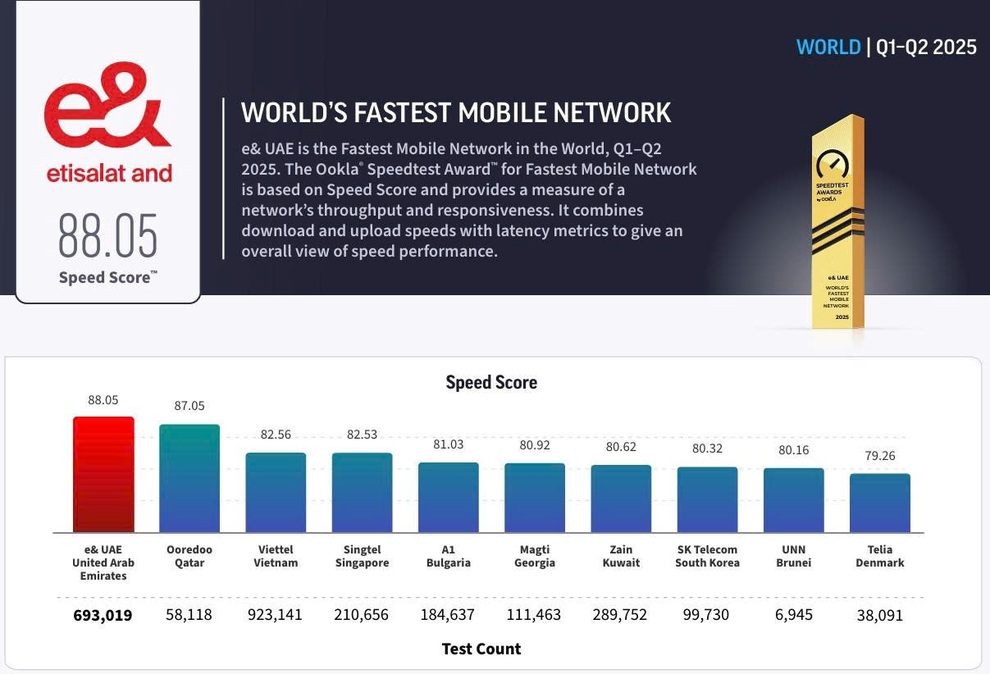
Latest report “Fastest mobile network in the world ”, Vietnam mobile network ranked number 3 (Photo: Ookla).
According to the latest data from Speedtest Global Index, in the ASEAN region, Vietnam has risen from 4th to 3rd in terms of mobile speed.
Accordingly, Singapore's mobile speed: about 163.29 Mbps; Malaysia: about 163.00 Mbps and Vietnam: about 146.64 Mbps.
Countries like Thailand, Indonesia, and the Philippines all have lower speeds than Vietnam.
According to SpeedTest, in Thailand, AIS will only achieve download speeds of 136.72 Mbps and upload speeds of 26 Mbps in 2025. Indonesian carrier Telkomsel will only achieve average download speeds of 45.89 Mbps and average upload speeds of 15.59 Mbps.
The 2024 2.6 GHz and 3.5 GHz spectrum auction increased the total IMT spectrum from 339.6 MHz to 659.6 MHz, creating favorable conditions for 5G in Vietnam to develop strongly.
Viettel has completed more than 7,000 5G BTS stations, covering 100% of the capitals of 34 provinces/cities, aiming to cover 5G to 99% of the population by 2030, with more than 20,000 BTS stations by the end of 2025.
VNPT and MobiFone did not disclose the number of BTS stations installed. However, VNPT announced that Vinaphone 5G waves have covered the whole country. MobiFone also joined the game since the end of March. The total number of 5G subscribers of the network operators has reached tens of millions.
According to the latest statistics, as of July this year from the Vietnam Internet Network Information Center (VNNIC, under the Ministry of Science and Technology), the average 5G network speed in Vietnam reached 447.03 Mb/s for download and 99.26 Mb/s for upload, with an average latency of only 24 milliseconds.
This is a record for download, upload speed and latency of 5G network in Vietnam so far, marking the efforts to improve the quality and stability of 5G network of domestic network operators.
According to the latest report “The World’s Fastest Mobile Network” from Speedtest Global Index (Ookla), the Vietnamese network has risen to the number 3 position globally. This is an overall evaluation category, based on millions of actual connections from users using 3G, 4G, 5G networks from terminal devices using modern chipsets.
Specifically, Viettel scored 82.56 points, ranking 3rd in the world. The two leading networks are e& of the UAE (88.05 points) and Ooredoo in Qatar (87.05 points). The Vietnamese network ranked above Singtel of Singapore (82.53 points).
Infrastructure for a breakthrough digital economy
Resolution 57-NQ/TW of the Politburo has set the goal of bringing Vietnam into the top 3 ASEAN in digital technology and artificial intelligence (AI) by 2030, in which, 5G is identified as the core platform for national digital transformation.
The resolution also orients the development of modern telecommunications infrastructure, promotes technological autonomy, and encourages the application of 5G in areas such as industry, healthcare, education, and smart cities.
With this Resolution, and the active participation of network operators, Vietnam will not only advance in the region in telecommunications technology but also accelerate digital transformation, aiming for a digital economy accounting for 20% of GDP by 2025 and 30% by 2030.
The Institute of Information and Communications Strategy once announced a forecast that 5G's contribution to GDP growth in 2025 will reach 7.34%, showing that experts highly appreciate the great potential of 5G for the economy.
In the research report “Leveraging 5G to Accelerate AI-Led Transformation in ASEAN” recently published by the Lee Kuan Yew School of Public Policy (LKYSPP), National University of Singapore, experts pointed out that ASEAN countries can take advantage of the convergence of 5G and artificial intelligence (AI) to promote transformational economic growth. The editor of this report is Vietnamese Professor Vu Minh Khuong.
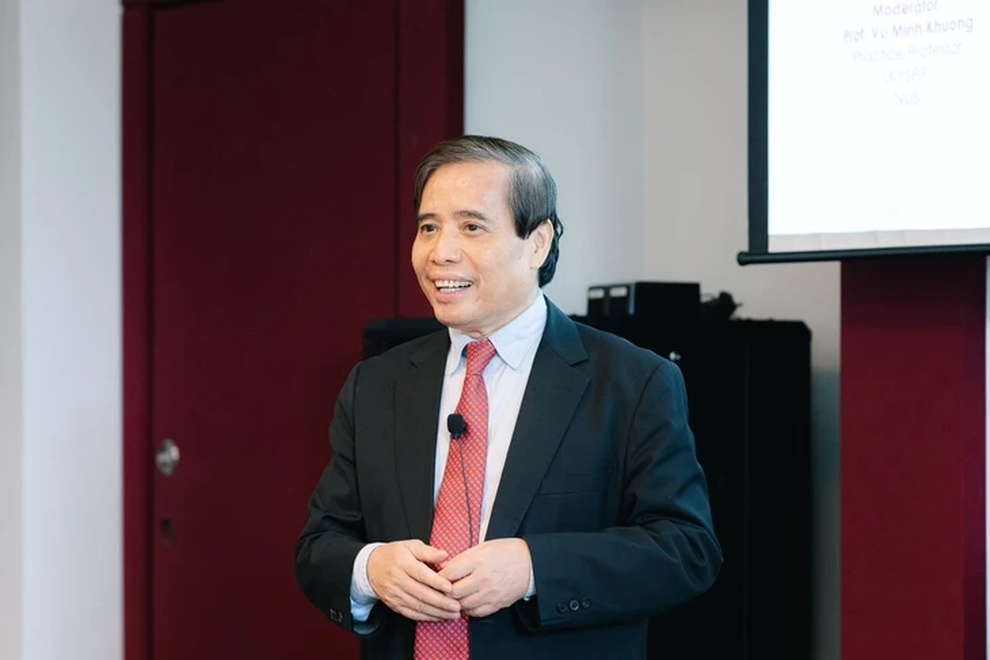
Professor Vu Minh Khuong shared at the announcement of the research report results: "The convergence between 5G and AI is the infrastructure for innovation" (Photo: LKYSPP).
According to the report, ASEAN is facing a huge opportunity as 5G technology alone is expected to contribute up to 130 billion USD to the Asia-Pacific economy by 2030.
“The convergence of 5G and AI is the infrastructure for innovation, promoting areas such as smart manufacturing, precision agriculture, and autonomous transportation. But ASEAN cannot afford to hesitate. The window to assert its regional leadership in smart connectivity is rapidly closing,” Professor Vu Minh Khuong shared.
Vietnam has been achieving remarkable economic achievements through its strategic approach to 5G and AI, according to the report.
Overall, although 5G and AI are still in the development and expansion stages, Vietnam has shown its ability to exploit these technologies not only to achieve connection speeds but also to create strategic value.
According to this report, Vietnam pursues a "Smart Following" strategy, which means not rushing to become a pioneering country, but prioritizing the adoption of technology at the right time, while promoting widespread deployment.
This approach allows Vietnam to deploy 5G more economically and efficiently, especially in priority areas such as high-tech zones, ports, industrial parks, etc., helping to optimize resources and direct investment to areas that bring high economic value.
Besides, in the context of global technology tensions, geopolitical neutrality is an advantage for Vietnam, helping to attract global investment in semiconductor manufacturing, telecommunications infrastructure and AI innovation.
Vietnam can also learn from successful 5G development coordination models in the region, such as Singapore.
The key is close cooperation between the State, enterprises, international technology solution providers and end users to promote specific commercial applications, thereby creating practical value instead of just stopping at infrastructure deployment.
In Resolution 57-NQ/TW issued on December 22, 2024 by the Politburo, 5G technology development is identified as one of the core factors to promote national digital transformation and innovation.
The Resolution emphasizes: "Developing telecommunications and Internet infrastructure that meets the requirements of backup, connectivity, safety, sustainability, satellite data transmission systems, high-speed broadband fiber optic cable networks covering the whole country, 5G, 6G and next-generation mobile information networks."
The resolution also specifies that 5G is one of the strategic technologies, and Vietnam will aim for nationwide 5G coverage by 2030.
Source: https://dantri.com.vn/cong-nghe/viet-nam-vuon-len-trong-cuoc-dua-5g-khu-vuc-20250815091118218.htm







![[Photo] General Secretary To Lam and National Assembly Chairman Tran Thanh Man attend the 80th Anniversary of the Traditional Day of the Vietnamese Inspection Sector](https://vphoto.vietnam.vn/thumb/1200x675/vietnam/resource/IMAGE/2025/11/17/1763356362984_a2-bnd-7940-3561-jpg.webp)




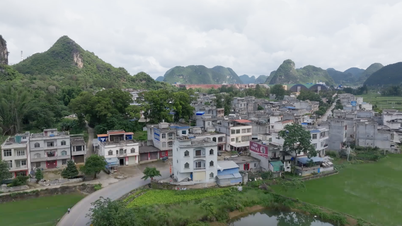


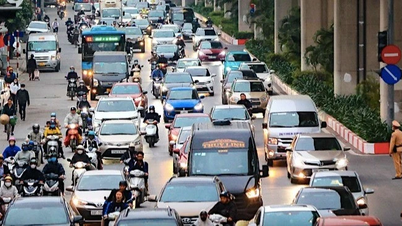














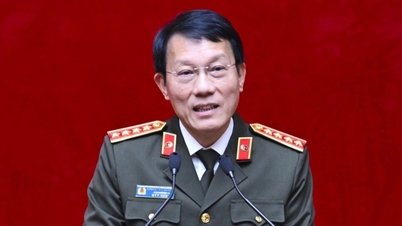



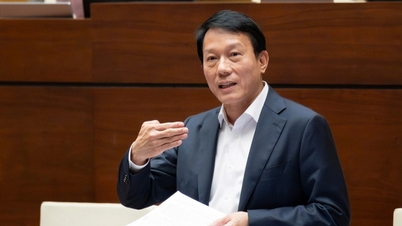

























































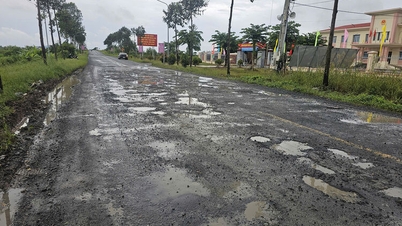
















Comment (0)